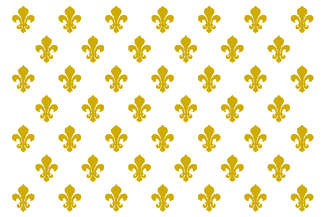The French Empire

From its beginnings in the early 1600s the French overseas empire was formed more by the agencies and stimulation of the state, church, and armed forces than by the initiation of the business community. Merchants, financiers, and manufacturers did engage in and profit from French imperial ventures, but generally they had to be prodded into participation by monarchical officials. In this the French colonial empire differed from its chief rival, the British Empire.
The Kings Henry IV, Louis XIV, and the latter’s minister Jean Baptiste Colbert, who founded the French East India Company, and many missionaries, explorers, and merchants helped acquire Canada, Louisiana, several West Indian islands, and parts of India for France.
Political motives for this overseas penetration varied from the search for markets, raw materials, investments, and cheap labor to the drive for glory, prestige, strategic advantage, and manpower. Prominent, too, was the mission civilisatrice, the urge to implant Roman Catholicism and French culture.The early voyages of Giovanni da Verrazzano and Jacques Cartier in the early 16th century, as well as the frequent voyages of French fishermen to the Grand Banks off Newfoundland throughout that century, were the precursors to the story of France’s colonial expansion. But Spain’s jealous protection of its American monopoly, and the disruptions caused in France itself by the Wars of Religion in the later 16th century, prevented any consistent efforts by France to establish colonies. Early French attempts to found colonies in Brazil, in 1555 at Rio de Janeiro (“France Antarctique”) and in 1612 at São Luís (“France Équinoxiale”), and in Florida (including Fort Caroline in 1562) were not successful, due to Portuguese and Spanish vigilance.France’s colonial empire began on July 27, 1605, with the foundation of Port Royal in the colony of Acadia in North America, in what is now Nova Scotia, Canada. A few years later, in 1608, Samuel de Champlain founded Quebec, which was to become the capital of the enormous, but sparsely settled, fur-trading colony of New France (also called Canada).
(Acadia itself was lost to the British in the Treaty of Utrecht in 1713.)As the French empire in North America expanded, they also began to build a smaller, but more profitable empire in the West Indies. Settlement along the South American coast in what is today French Guiana began in 1624, and a colony was founded on Saint Kitts in 1625 (the island was shared with the English until the Treaty of Utrecht in 1713, when it was ceded outright). The Compagnie des Îles de l’Amérique founded colonies in Guadeloupe and Martinique in 1635, and a colony was later founded on Saint Lucia by (1650).
The food-producing plantations of these colonies are built and sustained through slavery, with the supply of slaves dependent on the African slave trade. Local resistance by the indigenous peoples resulted in the Carib Expulsion of 1660.
The most important Caribbean colonial possession did not come until 1664, when the colony of Saint-Domingue (today’s Haiti) was founded on the western half of the Spanish island of Hispaniola.
French colonial expansion is not limited to the New World, however. In Senegal in West Africa, the French began to establish trading posts along the coast in 1624. In 1664, the French East India Company was established to compete for trade in the east. Colonies were established in India in Chandernagore in Bengal (1673) and Pondicherry in the Southeast (1674.) Colonies were also founded in the Indian Ocean, on the Île de Bourbon (Réunion, 1664.)
